Novel Name : The World Online
The World Online 1272 TWO Chapter 1272-Afterglow of the cavalry era
Chapter 1272 – Afterglow of the Cavalry Era
As for the Xijiang Governor-General House secretary-general, the Cabinet recommended Shu Lands Province Hanzhong Prefecture Governor Fu Bi.
Fu Bi was a famous minister of North Song. When he worked as the deputy minister of the Privy Court of North Song, he had worked on the reform of the North Song government with Fan Zhongyan.
After the failure of that reform, he was sent to Qingzhou and Yunzhou and was tasked with saving the civilians affected by disaster.
In the 2nd year of Zhihe, he was appointed as Chancellor.
In history, Fu Bi was sent to Liao Country many times as an ambassador, and he had a clear understanding of West Xia's geography.
The Cabinet recommended him because he was great at both administrativeand military matters. The suggestion to appoint him as secretary-general came after much deliberation, and he was a perfect fit to what Ouyang Shuo wanted.
Furthermore, Fu Bi had worked as the Hanzhong Prefecture Governor for a long time and understood the Shu Lands situation. His promotion this time would also help to stimulate the construction of the two paths connecting to Tibet.
...
The war of Mongolia in the 11th month was viewed as the final war in China.
The Mongol Empire had 1.3 million troops. Although they did not have as many troops as Great Xia, the outside world thought that this war would be a seismic one that would last for a long time.
Even if Great Xia could win, they would suffer hefty losses.
However, the war proceeded in a manner that greatly exceeded everyone's expectations. In this war, the Great Xia Army uprooted the enemy and did not give them any chance.
Especially the war in the Mongol Empire itself, which lacked any difficulty.
...
11th month, 17th day, Mongol Empire southeast border.
Bo'er Hu's forces were camped here. On the other hand, Chagatai's forces was camped at the northeast border, and they coordinated with one another to defend the east border of the Mongol Empire.
Their opponents were the Great Xia Beijiang and Phoenix legion corps.
Under the leadership of deputy marshal Chen Yucheng, the Beijiang legion corps entered through Beijiang Province and were ready to engage Bo'er Hu's troops. Meanwhile, Guo Ziyi led the Phoenix legion corps to enter through the west of Liaojin Province to charge toward Chagatai's forces.
At 9am, 1st legion Legion General of the Beijiang legion corps Zhang He led 20 thousand elite cavalry to act as the vanguard to crash into Bo'er Hu's main force on the vast grassland.
As one of the four heroes of Mongol, Bo'er Hu was skilled at cavalry battle. Upon learning that Great Xia's vanguard troops were all cavalry, he did not say anything and directly ordered his troops to proceed forward.
"Kill them all!"
Bo'er Hu led the way on his horse and charged toward the enemy.
As one of the top generals of the Three Kingdoms era, would Zhang He be a coward? Without a second word, he too led his troops forward.
In truth, in terms of warhorses, cavalry equipment, and even tactics, the Great Xia cavalry were miles ahead of the Mongol cavalry. The poor Mongolians still did not know this and still thought that they were the best in the world.
This battle totally proved this point.
Facing the 40 thousand Mongol cavalry, Zhang He's forces were not on the backfoot at all. They fought the enemy to a standstill, making Bo'er Hu's face flush red.
This was a straight up slap to the face.
The so-called Mongol iron cavalry did not have the ability to be arrogant in front of the Great Xia cavalry.
The face of the furious Bo'er Hu turned dark. He wanted to save a bit of his face, so his killing intent toward Zhang He's forces totally exploded. He ordered the main force to kill the enemy. At the same time, he ordered the two wings to gather up with the main force to surround the enemy.
Strictly speaking, this was the first battle between the Mongol iron cavalry and the Great Xia cavalry.
The strength of the enemy had exceeded Bo'er Hu's expectation. As such, to save their morale, he had no choice but to stop at nothing to destroy the enemy; this would allow them to regain some of their pride and dignity.
If not, the outcome would be extremely detrimental.
Bo'er Hu wanted to go all out, but Zhang He was not interested. After all, he was given a mission.
Hearing the spies report that the right and left wings of the enemy were moving toward them, Zhang He grinned. They had actually completed this mission so easily, which was beyond his expectations.
"Retreat!"
Zhang He did not hesitate and immediately gave the order to retreat.
"Chase!"
Seeing the enemy retreat, Bo'er Hu immediately guessed that they might have gotten wind of the movement of the wings. More importantly, he could not let the enemy escape.
If not, where would all his face go?
"Let the two wings speed up and rush over to gather with the main force!"
Originally, Bo'er Hu intended to let the two wings wrap around to the back of the enemy. However, seeing the enemy retreat, his plan would not work. As a result, they might as well directly chase them.
Two armies, one chasing and one fleeing, galloping across the vast Mongolian grassland, what a spectacle.
In the blink of an eye, noon arrived; the two armies had travelled 100 odd miles. This travelling speed was something that infantry troops could never achieve.
In this regard, the cavalry truly deserved to be prideful.
Shortly after, a small, hilly region appeared in front of Zhang He's troops. Hill after hill, rising and dipping like green bubbles on the grassland, a majestic view.
Zhang He did not hesitate and directly charged in, disappearing from Bo'er Hu's sights.
Bo'er Hu did not hesitate either. He directly ordered the army to chase after the enemy. On the vast grasslands, even the hills could not exceed 35 meters. Moreover, there were no trees, so it was impossible to set up an ambush.
Hence, Bo'er Hu feared nothing.
Only after leading his troops in did he realize that something was wrong. At this point, he saw many shadows above every hill, a large number of Great Xia troops, and simple defensive work completed.
Obviously, this was the carefully planned final battle location of the enemy.
When Bo'er Hu saw that, not only did he not panic, but he even laughed out loud and said, "I did not expect the Great Xia Army to be so stupid. They think such small hills can block our attacks? How immature."
Logically speaking, 35-meter-high small hills were not an ideal ambushing location. Not only could one not ambush the enemy, but the moment one was stuck up there, they would be dead for sure without water.
Bo'er Hu did not hesitate and ordered the army to spread out and siege each hill.
The hills on the grassland had a relatively gentle slope. With the skills of the Mongol cavalry, they could easily charge up. They did not need to get off their horse to fight.
The worries that they had toward the enemy in the morning had already been tossed to the back of his head.
"Charge!"
Bo'er Hu personally led his troops to charge toward Zhang He's forces in front. At the same time, he ordered the two wings to remove the nails on the top of the hills.
The entire hilly region had no less than 100 of such hills, and they were closely packed next to one another.
At the foot of one of the hills, one thousand Mongol cavalry soldiers valiantly launched their charge. Their crescent knives shone with an eye-piercing chilly glimmer under the noon sun.
When the commander on the hill saw that, he calmly ordered, "Fire the cannons!"
'Hong! Hong! Hong!'
The cannons that were arranged on the hills earlier were fired instantly.
The cavalry charge at the front immediately dropped to the ground. The charge of the entire group slowed down. However, the Mongol cavalry were a pack of fearless wolves, and they braced the cannon fire and continued their charge.
On such a short hill, before they could even fire the second round of cannons, the enemy had already charged to the top.
When the commander saw that, he calmly ordered, "Gunners, ready!"
"Fire!"
'Pa! Pa! Pa!'
Rushed and dense gunshot sounds broke out. Bullets were fired out in an unrestrained manner.
The strong Mongol cavalry were simply too weak under the bullet rain of the Great Xia Army. Rows and rows of cavalry fell like wheat, unable to cause any damage.
In front of firearms, the Mongol cavalry that still belonged to the cold weapons era was destined to be slaughtered.
That's right; it was a slaughter.
The Great Xia firearms had gone from the primitive blunderbuss to the relatively advanced matchlocks to the current flintlock.
Unlike the matchlock that was difficult to arm and reload, the flintlocks had a spring rotating arm with a flint stone in it. When the rotating arm was turned downward, the flint stone would create sparks with the steel board in the gunpowder chamber, causing the sparks to fall into the gunpowder chamber and igniting the gunpowder.
Since it relied on flint to light it up, this gun was called a flintlock.
Compared to the matchlock, the flintlock was safer and more reliable. Its structure was simple and reloading it was easy. One flint stone could last for 30 rounds, and even gave rise to the possibility of firing successive shots.
Such pros allowed the flintlock to be commonly used for 300 years.
The flintlock did not leave the stage until the creation of the more advanced percussion guns. Currently, Great Xia's research and development on percussion guns had reached a critical stage, and experimental products were being created.
They had not equipped the armies with them because the costs were too high, and they could not produce it on such a scale.
This related to their current industrialization standards. All things considered, two years had passed since they began industrialization. Naturally, they had not reached the level required to produce percussion guns.
Even then, the power of the flintlock was enough to send a chill down the spines of the enemy.
The cannons and firearms worked together. At the same time, they made use of the beneficial geography to fire down from above. The Mongol cavalry that were wearing leather or even cloth armor were like babies, unable to take a hit.
Even if elite cavalries managed to charge up, a row of sword shield soldiers would be waiting in front of the gunners. The Mongol cavalry had no way to proceed forward.
The small hills became a massive nightmare for the Mongol cavalry.
The current Bo'er Hu had already led his troops deep into the hills. When the messenger reported that the two wings had suffered heavy casualties as they were surrounding the hills, his expression became really complicated.
"How did that happen?" Bo'er Hu could not understand.
The messenger replied in a state of shock, "General, the enemy has arranged cannons on the mountains, and they also have many gunners. Their killing strength is shocking, and we cannot charge up at all."
Bo'er Hu felt his heart turn cold. Finally, he realized that the enemy's trap was not so simple.
"General, let's retreat!" the deputy suggested.
Bo'er Hu's face was really dark. After a long while, he said, "No, we cannot." To the Mongol Empire, this was a war without a way out. If they did not win, they would be wiped out.
The deputy anxiously said, "Then let's charge out of this hill. We cannot let the boys die for nothing."
"That's a good idea!" Bo'er Hu was not stubborn this time.
Unfortunately, this was a carefully constructed plot by Chen Yucheng, so how could he allow the enemy who had fallen into it escape so easily? Just as Bo'er Hu's troops charged out of the hill region, they found the Great Xia Army already waiting for them around the hill.
As for the Xijiang Governor-General House secretary-general, the Cabinet recommended Shu Lands Province Hanzhong Prefecture Governor Fu Bi.
Fu Bi was a famous minister of North Song. When he worked as the deputy minister of the Privy Court of North Song, he had worked on the reform of the North Song government with Fan Zhongyan.
After the failure of that reform, he was sent to Qingzhou and Yunzhou and was tasked with saving the civilians affected by disaster.
In the 2nd year of Zhihe, he was appointed as Chancellor.
In history, Fu Bi was sent to Liao Country many times as an ambassador, and he had a clear understanding of West Xia's geography.
The Cabinet recommended him because he was great at both administrativeand military matters. The suggestion to appoint him as secretary-general came after much deliberation, and he was a perfect fit to what Ouyang Shuo wanted.
Furthermore, Fu Bi had worked as the Hanzhong Prefecture Governor for a long time and understood the Shu Lands situation. His promotion this time would also help to stimulate the construction of the two paths connecting to Tibet.
...
The war of Mongolia in the 11th month was viewed as the final war in China.
The Mongol Empire had 1.3 million troops. Although they did not have as many troops as Great Xia, the outside world thought that this war would be a seismic one that would last for a long time.
Even if Great Xia could win, they would suffer hefty losses.
However, the war proceeded in a manner that greatly exceeded everyone's expectations. In this war, the Great Xia Army uprooted the enemy and did not give them any chance.
Especially the war in the Mongol Empire itself, which lacked any difficulty.
...
11th month, 17th day, Mongol Empire southeast border.
Bo'er Hu's forces were camped here. On the other hand, Chagatai's forces was camped at the northeast border, and they coordinated with one another to defend the east border of the Mongol Empire.
Their opponents were the Great Xia Beijiang and Phoenix legion corps.
Under the leadership of deputy marshal Chen Yucheng, the Beijiang legion corps entered through Beijiang Province and were ready to engage Bo'er Hu's troops. Meanwhile, Guo Ziyi led the Phoenix legion corps to enter through the west of Liaojin Province to charge toward Chagatai's forces.
At 9am, 1st legion Legion General of the Beijiang legion corps Zhang He led 20 thousand elite cavalry to act as the vanguard to crash into Bo'er Hu's main force on the vast grassland.
As one of the four heroes of Mongol, Bo'er Hu was skilled at cavalry battle. Upon learning that Great Xia's vanguard troops were all cavalry, he did not say anything and directly ordered his troops to proceed forward.
"Kill them all!"
Bo'er Hu led the way on his horse and charged toward the enemy.
As one of the top generals of the Three Kingdoms era, would Zhang He be a coward? Without a second word, he too led his troops forward.
In truth, in terms of warhorses, cavalry equipment, and even tactics, the Great Xia cavalry were miles ahead of the Mongol cavalry. The poor Mongolians still did not know this and still thought that they were the best in the world.
This battle totally proved this point.
Facing the 40 thousand Mongol cavalry, Zhang He's forces were not on the backfoot at all. They fought the enemy to a standstill, making Bo'er Hu's face flush red.
This was a straight up slap to the face.
The so-called Mongol iron cavalry did not have the ability to be arrogant in front of the Great Xia cavalry.
The face of the furious Bo'er Hu turned dark. He wanted to save a bit of his face, so his killing intent toward Zhang He's forces totally exploded. He ordered the main force to kill the enemy. At the same time, he ordered the two wings to gather up with the main force to surround the enemy.
Strictly speaking, this was the first battle between the Mongol iron cavalry and the Great Xia cavalry.
The strength of the enemy had exceeded Bo'er Hu's expectation. As such, to save their morale, he had no choice but to stop at nothing to destroy the enemy; this would allow them to regain some of their pride and dignity.
If not, the outcome would be extremely detrimental.
Bo'er Hu wanted to go all out, but Zhang He was not interested. After all, he was given a mission.
Hearing the spies report that the right and left wings of the enemy were moving toward them, Zhang He grinned. They had actually completed this mission so easily, which was beyond his expectations.
"Retreat!"
Zhang He did not hesitate and immediately gave the order to retreat.
"Chase!"
Seeing the enemy retreat, Bo'er Hu immediately guessed that they might have gotten wind of the movement of the wings. More importantly, he could not let the enemy escape.
If not, where would all his face go?
"Let the two wings speed up and rush over to gather with the main force!"
Originally, Bo'er Hu intended to let the two wings wrap around to the back of the enemy. However, seeing the enemy retreat, his plan would not work. As a result, they might as well directly chase them.
Two armies, one chasing and one fleeing, galloping across the vast Mongolian grassland, what a spectacle.
In the blink of an eye, noon arrived; the two armies had travelled 100 odd miles. This travelling speed was something that infantry troops could never achieve.
In this regard, the cavalry truly deserved to be prideful.
Shortly after, a small, hilly region appeared in front of Zhang He's troops. Hill after hill, rising and dipping like green bubbles on the grassland, a majestic view.
Zhang He did not hesitate and directly charged in, disappearing from Bo'er Hu's sights.
Bo'er Hu did not hesitate either. He directly ordered the army to chase after the enemy. On the vast grasslands, even the hills could not exceed 35 meters. Moreover, there were no trees, so it was impossible to set up an ambush.
Hence, Bo'er Hu feared nothing.
Only after leading his troops in did he realize that something was wrong. At this point, he saw many shadows above every hill, a large number of Great Xia troops, and simple defensive work completed.
Obviously, this was the carefully planned final battle location of the enemy.
When Bo'er Hu saw that, not only did he not panic, but he even laughed out loud and said, "I did not expect the Great Xia Army to be so stupid. They think such small hills can block our attacks? How immature."
Logically speaking, 35-meter-high small hills were not an ideal ambushing location. Not only could one not ambush the enemy, but the moment one was stuck up there, they would be dead for sure without water.
Bo'er Hu did not hesitate and ordered the army to spread out and siege each hill.
The hills on the grassland had a relatively gentle slope. With the skills of the Mongol cavalry, they could easily charge up. They did not need to get off their horse to fight.
The worries that they had toward the enemy in the morning had already been tossed to the back of his head.
"Charge!"
Bo'er Hu personally led his troops to charge toward Zhang He's forces in front. At the same time, he ordered the two wings to remove the nails on the top of the hills.
The entire hilly region had no less than 100 of such hills, and they were closely packed next to one another.
At the foot of one of the hills, one thousand Mongol cavalry soldiers valiantly launched their charge. Their crescent knives shone with an eye-piercing chilly glimmer under the noon sun.
When the commander on the hill saw that, he calmly ordered, "Fire the cannons!"
'Hong! Hong! Hong!'
The cannons that were arranged on the hills earlier were fired instantly.
The cavalry charge at the front immediately dropped to the ground. The charge of the entire group slowed down. However, the Mongol cavalry were a pack of fearless wolves, and they braced the cannon fire and continued their charge.
On such a short hill, before they could even fire the second round of cannons, the enemy had already charged to the top.
When the commander saw that, he calmly ordered, "Gunners, ready!"
"Fire!"
'Pa! Pa! Pa!'
Rushed and dense gunshot sounds broke out. Bullets were fired out in an unrestrained manner.
The strong Mongol cavalry were simply too weak under the bullet rain of the Great Xia Army. Rows and rows of cavalry fell like wheat, unable to cause any damage.
In front of firearms, the Mongol cavalry that still belonged to the cold weapons era was destined to be slaughtered.
That's right; it was a slaughter.
The Great Xia firearms had gone from the primitive blunderbuss to the relatively advanced matchlocks to the current flintlock.
Unlike the matchlock that was difficult to arm and reload, the flintlocks had a spring rotating arm with a flint stone in it. When the rotating arm was turned downward, the flint stone would create sparks with the steel board in the gunpowder chamber, causing the sparks to fall into the gunpowder chamber and igniting the gunpowder.
Since it relied on flint to light it up, this gun was called a flintlock.
Compared to the matchlock, the flintlock was safer and more reliable. Its structure was simple and reloading it was easy. One flint stone could last for 30 rounds, and even gave rise to the possibility of firing successive shots.
Such pros allowed the flintlock to be commonly used for 300 years.
The flintlock did not leave the stage until the creation of the more advanced percussion guns. Currently, Great Xia's research and development on percussion guns had reached a critical stage, and experimental products were being created.
They had not equipped the armies with them because the costs were too high, and they could not produce it on such a scale.
This related to their current industrialization standards. All things considered, two years had passed since they began industrialization. Naturally, they had not reached the level required to produce percussion guns.
Even then, the power of the flintlock was enough to send a chill down the spines of the enemy.
The cannons and firearms worked together. At the same time, they made use of the beneficial geography to fire down from above. The Mongol cavalry that were wearing leather or even cloth armor were like babies, unable to take a hit.
Even if elite cavalries managed to charge up, a row of sword shield soldiers would be waiting in front of the gunners. The Mongol cavalry had no way to proceed forward.
The small hills became a massive nightmare for the Mongol cavalry.
The current Bo'er Hu had already led his troops deep into the hills. When the messenger reported that the two wings had suffered heavy casualties as they were surrounding the hills, his expression became really complicated.
"How did that happen?" Bo'er Hu could not understand.
The messenger replied in a state of shock, "General, the enemy has arranged cannons on the mountains, and they also have many gunners. Their killing strength is shocking, and we cannot charge up at all."
Bo'er Hu felt his heart turn cold. Finally, he realized that the enemy's trap was not so simple.
"General, let's retreat!" the deputy suggested.
Bo'er Hu's face was really dark. After a long while, he said, "No, we cannot." To the Mongol Empire, this was a war without a way out. If they did not win, they would be wiped out.
The deputy anxiously said, "Then let's charge out of this hill. We cannot let the boys die for nothing."
"That's a good idea!" Bo'er Hu was not stubborn this time.
Unfortunately, this was a carefully constructed plot by Chen Yucheng, so how could he allow the enemy who had fallen into it escape so easily? Just as Bo'er Hu's troops charged out of the hill region, they found the Great Xia Army already waiting for them around the hill.
Rankings

To Cure the Playboy
Hailey Allen
Read To Cure the Playboy by Hailey Allen. Genre: Chinese novels. Read the full novel online for free hereRecovering from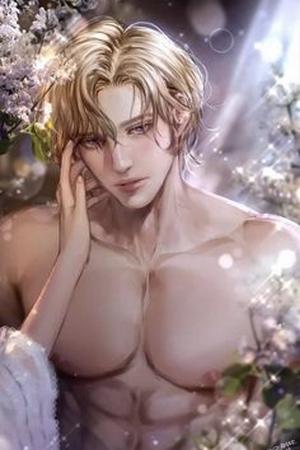
Love Has its Will by Selena Lewis
Selena Lewis
Read Love Has its Will by Selena Lewis by Selena Lewis. Genre: Chinese novels. Read the full novel online for free hereT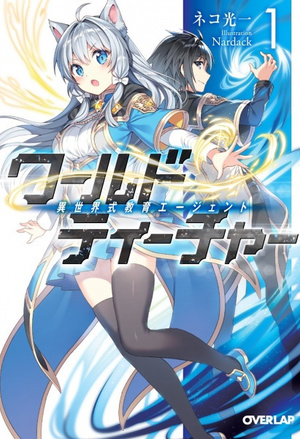
World Teacher – Other World Style Education & Agent
Neko Kouichi
A man who was once called the world strongest agent ended up becoming a teacher after his retirement to train the new ge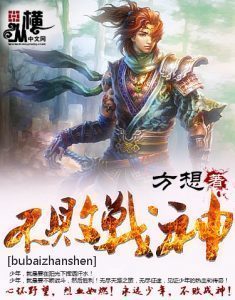
Undefeated God of War
方想
Youth, is meant to be used to shed sweat under the sun!Youth, is to continuously engage in battles, and secure the win!
My Entire Class Was Summoned to Another World except for Me
サザンテラス
A god of a different world had abruptly appeared in my classroom and semi-forcibly summoned the entire class to his worl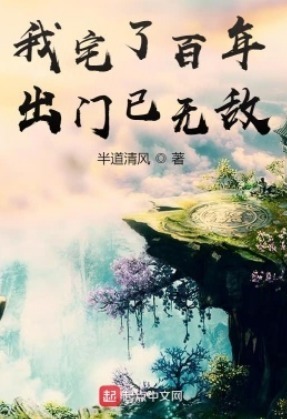
I Stayed At Home For A Century, When I Emerged I Was Invincible
Halfway Breeze
Chu Xuan transmigrated to a fantasy world and became the young master of a powerful family. He was rebuked for misbehavi
I'm the King Of Technology
Lumydee
Chu Yi dies in a car crash and becomes Landon Barn, the illegitimate son of king Barn, ruler of Arcadina. Because his mo
Kiss Me Goodnight, Mrs. CEO!
黛蜜儿
In the middle of the night, looking at the woman in his embrace, he smiled devilishly, “With your discontentment, do y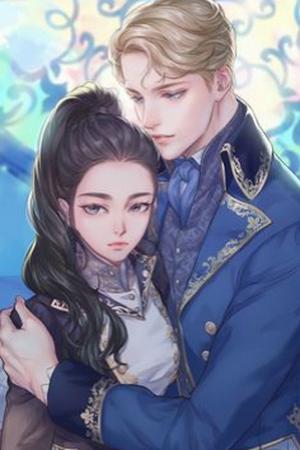
A Man Like None Other
Unknown
Read A Man Like None Other by . Genre: Chinese novels. Read the full novel online for free here.Jared Chance seethes wit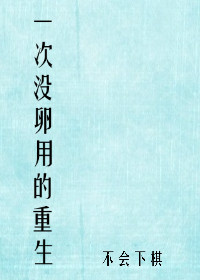
One Useless Rebirth
不会下棋
He Bai won the lottery, became rich, and reached the pinnacle of life. Then, he inadvertently took a picture of the Film